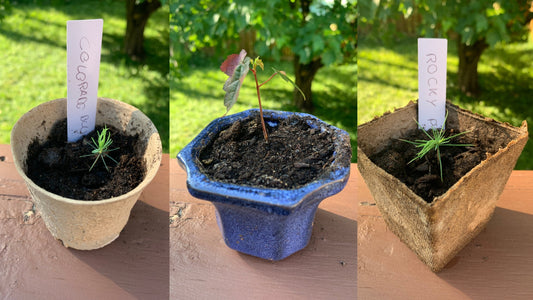Certain periods in life give us the impression of being in a slightly overly dramatic film, with a relentless plot: fatigue, stress, unforeseen events, bad news, toxic relationships, repeated questioning... And sometimes, we end up believing that others have it all figured out while we just try to stay upright.
But in Japan, a thousand-year-old wisdom reminds us that falling is not a failure . In fact, it is an essential part of the journey.
Nana korobi ya oki — “Fall down seven times, get up eight.”
A simple sentence, but one that could well change the way we weather storms.
This Japanese maxim tells us that resilience isn't heroic, it's human. It isn't spectacular, it's everyday. What if we learned to cultivate it, at our own pace, without pressure, without performance, but gently? Maybe even... with a hobby?
1. The art of stumbling with elegance
In a society that values rapid and visible success, we sometimes feel ashamed of falling. Of not being "on top," of not being in shape, balanced, or with a perfectly planned career plan.
But Nanakorobi Yaoki tells us: You will fall. It's normal. And it's even a good sign—it means you're moving forward.
Getting back up isn't about "pretending everything's okay." It's about finding, in every fall, a little spark that pushes us to start again. To say to ourselves, " Okay, it hurts, but I'm still here. What if I tried something different? "
And sometimes, to rediscover that spark, to take a step back, all it takes is a little trigger: a moment out of time, an activity that requires patience and concentration, a box received on a rainy Sunday, containing... a bonsai to grow. Or a Temari ball to embroider. An introduction to pottery, or a recipe that we really enjoyed cooking. Something beautiful to create with our hands.
Giving this kind of gift—or giving it to yourself—is not trivial. It's a gesture that says, “ I believe in you. You'll get there, at your own pace. ” It's a quiet but powerful way to turn on a light when the road ahead becomes unclear.
And if you sense that a loved one is going through a difficult time, you can also simply… share this article with them. (It's free, I promise.) Who knows? They might just find a phrase, an idea, or some inspiration to help them get back up, once again.
2. Resilience is cultivated like a bonsai
Resilience isn't a superpower reserved for an elite few. It's a muscle that you strengthen with every workout. And like all muscles, it requires training, patience... and sometimes a new hobby. Why not the art of bonsai?
Growing a bonsai means accepting that things take time . That nothing happens exactly as planned. That some seeds will take two weeks to germinate, others three months. And that none will grow if you look at them every 10 minutes and sigh.
It's also about learning to be attentive, to anchor yourself in the present . To notice the first leaf, to adjust your watering, to prune carefully. Not to force things, but to accompany them.
And in the process, we end up surprising ourselves: we become calmer, more patient, gentler with ourselves. Because if a tree has the right to take its time, why not us?
That's why at Ikigai Box, we don't just sell products. We offer experiences. Invitations to slow down, to reconnect, to persevere. Because sometimes, the greatest gift we can give ourselves is a meaningful break .
And while stitching a Temari ball or trimming a bonsai tree doesn't cure everything... it can help you get through. One stitch at a time. One shoot at a time. One step at a time.
3. Get up... together
In Nanakorobi Yaoki , there is a silent, but essential word: together.
Getting back up, yes—but not always alone. There are days when our own strength isn't enough. And that's okay. It's not a failure. It's not a weakness. It's deeply human.
This is where those around us become invaluable. An outstretched hand. A listening ear. A sentence that says, “I understand.” Or even a simple look that says, “I’m here.” Sometimes it doesn’t take much to inspire movement, a recovery, a small step forward. And sometimes, we have that role to play.
So, let's dare to talk about it. Let's dare to say when things aren't going well. And let's listen when someone confides in us about their downfalls. Because we don't need to have all the answers to support. Just be there, with kindness. Inspiration doesn't always come from great successes, but often from small, courageous comebacks.
What if we integrated Nanakorobi Yaoki into our daily lives, not as a heroic motto, but as a gentle and concrete practice ?
Start with 10 minutes a day. Ten minutes to create something —anything. A clumsy drawing, a crooked stitched thread, a journal entry, a watered sprout, a homemade cake. It's not the result that matters, it's the act. The consistency. The intention. The patience.
And no, patience is not a weakness. It is the quiet strength that allows things to take root. It is that inner voice that says, “I'm not there yet, but I'm moving forward.” Even slowly. Even imperfectly.
Maybe you're in a bit of a fog. Maybe you're thinking of someone who's going through something difficult. Either way, remember this: getting back up isn't about starting from scratch . It's about moving on, with a little more wisdom, tenderness, and sometimes creativity.
What if giving a small hobby—like a box of bonsai, temari, or even this article—could be a small but powerful way to tell someone, “ I believe in you. I’m here. ” It’s not much, but it can make all the difference.
Because, deep down, it's not art that heals. It's allowing yourself to create, to try, to fail sometimes... but always to start again.
Fall down seven times. Get up eight.
And, who knows, inspire someone to do the same. 🌱




